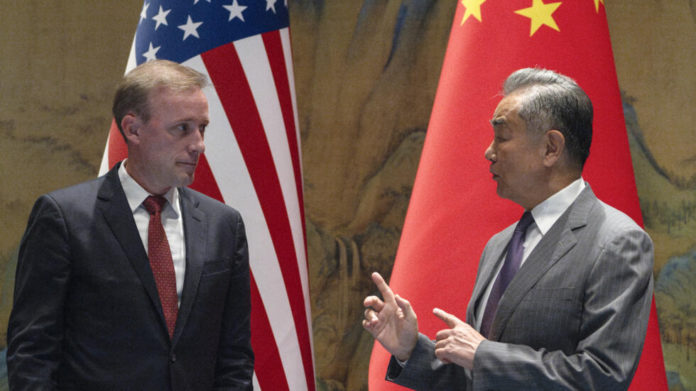This report sums up the recent diplomatic talk between Jake Sullivan, US National Security Advisor, and Wang Yi, a Chinese diplomat, focused on their discussions to stabilize US-China relations amidst ongoing tensions. Sullivan visited China to address key issues such as Taiwan, trade, and regional conflicts.
On August 29, 2024, the United States National Security Advisor visited China at the invitation of Wang Yi, a senior Chinese diplomat. This marked their fifth meeting since their previous encounter in Bangkok in January. The three-day trip focused on securing the relationship between the world’s two biggest economies. China’s Foreign Ministry specified that while the two countries maintain connections across numerous domains the US continues actions perceived as containment, persuading China to adopt “resolute measures.”
Upon arriving in Beijing, Sullivan expressed ambition for “productive conversations” with Yi, indicating an eagerness to address both areas of agreement and disagreement. Yi cited this desire for “substantive” talks, referring to a plan for advancing U.S.-China relations established during talks between Presidents Biden and Xi Jinping in San Francisco.
The prime focus of the discussion was the Taiwan issue, as China considers Taiwan a “red line” that should not be crossed. The US is expected to reaffirm its commitment to the one-China policy. Another significant topic was trade, which included tariffs, export controls, and investment restrictions. This comes shortly after the US announced new sanctions on some Chinese companies for their alleged support for Russia in the Ukraine conflict, which China condemned as disruptive to international trade. Despite these tensions, the US has continued to increase cooperation with China highlighting the growing trade volume between the two countries in 2024.
Moreover, both sides also exchanged views on conflicts in the Middle East and Ukraine, where China promotes peace talks and ceasefires. China has affirmed the US’s embrace of a “responsible position” aligned with the broader international community. Both countries have expressed that decoupling from each other is not advantageous, acknowledging the significance of their economic ties and the need for cooperation on global issues.
The backdrop of these discussions also included growing concerns from U.S. allies, such as Japan and the Philippines, about increased regional tensions attributed to China. Japan has expressed “serious concern” over South China Sea developments, blaming Beijing for “dangerous and coercive” actions. An American official said that Sullivan would discuss the maritime disputes during his meetings in Beijing, reaffirming commitments to alliances and national security measures.
Sullivan and Yi have met multiple times over the past year-and-a-half in different locations, repeatedly behind closed doors. Wang described U.S.-China ties as “critical” with global inference, expressing hope for stable and sustainable development. As the U.S. proceeds with its elections in November, these discussions are viewed to ease tensions, however, some analysts argue that the current diplomatic approach may be too lenient given China’s assertive foreign policy.
Sullivan aims to expand military-to-military dialogue to prevent conflicts, particularly around Taiwan. The U.S. is also seeking Chinese cooperation in addressing domestic issues related to fentanyl production and establishing safety standards for artificial intelligence. Beijing is expected to voice its disapproval of U.S. tariffs and export controls while asserting its claims over Taiwan. Both nations remain cautious regarding the potential for broader regional conflict amidst ongoing tensions, such as those stemming from the Gaza war.




